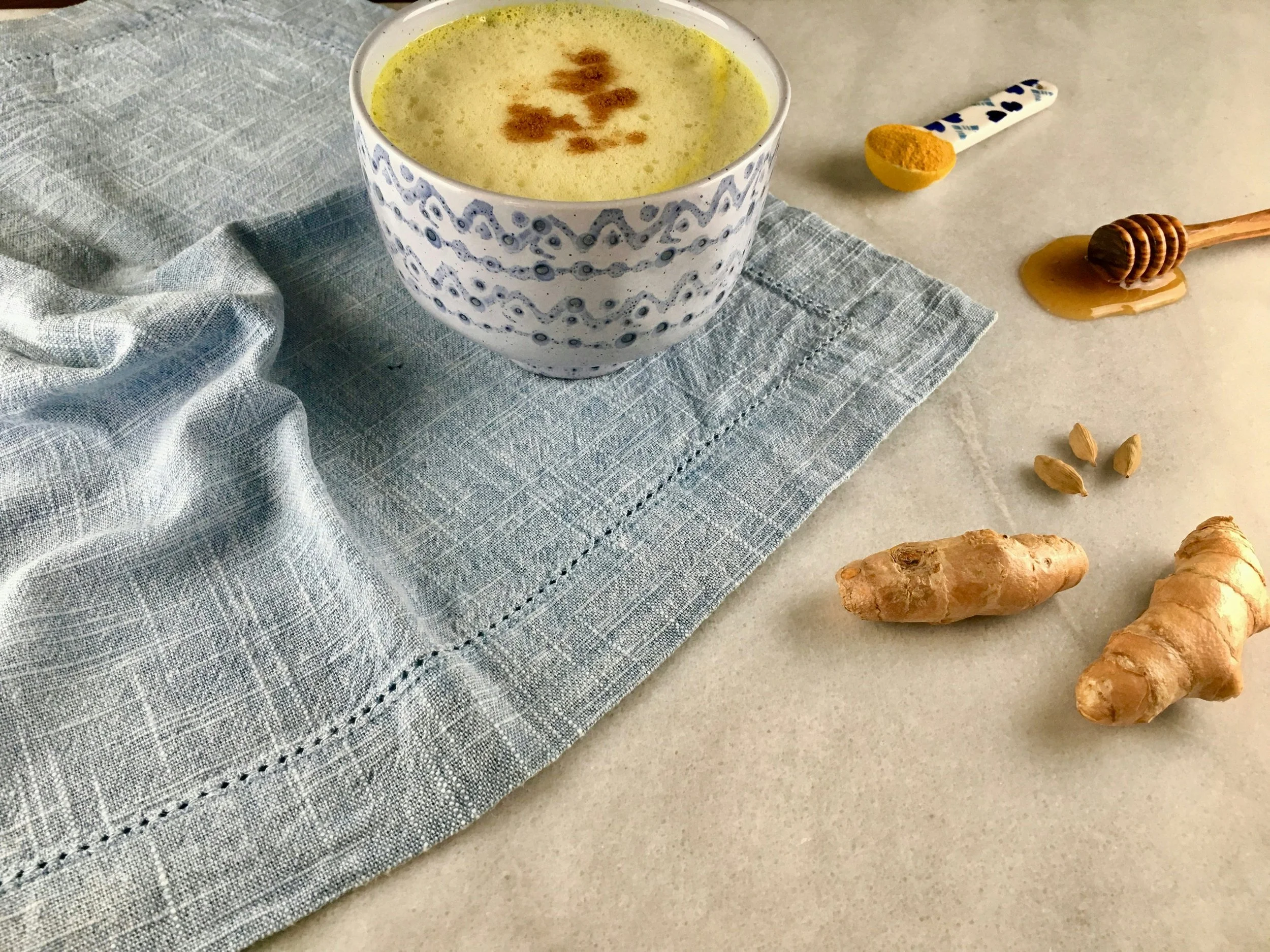Reviving from Burnout: Ayurvedic Rituals to Regulate the Nervous System and Restore Balance
You may feel you have lost touch with your work, with your relationships and even with yourself as a result of burnout. Ayurveda provides an off-ramp, not a shortcut cut, but a long-term pattern of kind habits that reassure your body can relax.
By Featured Writer, Biba Rey.
Burnout has a way of sneaking up on you.
It starts small, with more coffee, some more late nights, and a feeling of creeping exhaustion that you will soon be able to sleep and take a break. All of a sudden, you get an overwhelming feeling, even with the petty things, and your body hurts in ways you are not used to, and your mind is electric when all you need is to calm down.
And perhaps this does not sound new to you. “Burnout is an occupational phenomenon” that is on the increase, as identified in this article by the World Health Organisation.
Where modern psychology has provided us with helpful tools to understand its mental and emotional burden, ancient systems, such as Ayurveda, can offer a supportive alternative: one that grounds burnout in the vibrations of the body, mind, and nature.
According to this Better Health article: “Ayurveda or Ayurvedic medicine is a system of traditional medicine native to India, which uses a range of treatments, including panchakarma (‘5 actions’), yoga, massage, acupuncture and herbal medicine, to encourage health and wellbeing.”
In this article, you will learn about Ayurvedic wisdom as well as Ayurvedic rituals for burnout recovery and how they may be used to restore balance to your nervous system and regain your path to inner harmony.
Understanding Burnout Through the Ayurvedic Lens
Ayurveda, the traditional system of medicine from India, sees health as a state of balance between three primary energies, or doshas. More on the different types of Doshas can be found in this Healthline article: What Are the Ayurveda Doshas? Vata, Kapha, and Pitta Explained.
Vata (air + space): Governs movement, creativity, and the nervous system. When out of balance, it can cause anxiety, restlessness, and insomnia.
Pitta (fire + water): Governs metabolism, drive, and focus. When aggravated, it can cause irritability, frustration, and inflammatory issues.
Kapha (earth + water): Governs stability, strength, and immunity. When excessive, it can lead to sluggishness, lethargy, and resistance to change.
Burnout often presents as a Vata-Pitta imbalance, an overdriven, fiery mind fuelled by stress, coupled with a restless nervous system that never powers down. The result? Exhaustion on every level.
Ayurvedic Rituals to Regulate the Nervous System
When you’re in a constant state of doing, your body spends more time in sympathetic nervous system mode, the fight-or-flight response, than in parasympathetic mode, where repair and restoration happen. Ayurveda’s daily rituals (dinacharya) are designed to bring you back into that restorative state.
1. Start the Day Grounded: Ayurvedic Morning Rituals for Burnout Recovery
The first hour after waking can set the tone for your whole day. Instead of diving into emails or newsfeeds, Ayurveda encourages slow, intentional starts.
Try this:
Oil pulling: Swish a teaspoon of sesame or coconut oil in your mouth for 5 to 10 minutes to remove toxins and stimulate digestion.
Abhyanga (self-massage): Warm a little sesame oil and massage it gently into your skin before your shower. This calms Vata, nourishes the nervous system, and boosts circulation.
Gentle breathwork: Practice nadi shodhana (alternate nostril breathing) for 5 minutes to balance the brain hemispheres and steady the mind.
2. Nourishment as Medicine: Restoring Vital Energy Through Ayurvedic Foods
Burnout depletes ‘ojas’, your vital energy reserves, so food becomes more than fuel; it’s medicine.
Ayurvedic food tips for burnout recovery:
Opt for warm, cooked meals over raw or cold foods to support digestion.
Include grounding foods: root vegetables, stews, porridge, and ghee.
Use calming spices like cardamom, fennel, and turmeric.
Avoid overstimulating foods: excess caffeine, refined sugar, and very spicy dishes.
A simple recipe: Golden milk (warm milk with turmeric, cinnamon, and a touch of honey) before bed can soothe the nervous system and improve sleep.
🌿 Editor’s Note: Honouring Tradition Whilst Living Compassionately
Ayurveda has long revered ghee for its nourishing and medicinal qualities, alongside golden milk, and we acknowledge its significance in the historical and cultural context of these practices. At the same time, as a vegan-aligned platform, we’re committed to sharing these timeless approaches in a way that reflect compassionate, plant-based living, too.
If you follow a vegan or dairy-free lifestyle, you can still enjoy the richness and ritual of these recipes by using alternatives like vegan ghee, coconut oil, or infused plant-based butters. These options offer similar flavour and function whilst staying true to your values.
🛠️ Editor’s Tip: To make any ghee-based recipe vegan, simply swap traditional ghee for vegan ghee or coconut oil. It’s a simple, mindful adaptation - a modern twist on a timeless practice.
3. Midday Reset: Protecting Your Energy
For many, the afternoon slump is when burnout symptoms flare aspects such as brain fog, irritability, or anxiety. Ayurveda suggests this is when Pitta (fire + water) energy peaks, making it an ideal time for grounding and re-centring.
Practical steps:
Step away from screens for at least 10 to 15 minutes.
If possible, eat lunch away from your desk.
Take a short walk outdoors or practise a few gentle yoga stretches (child’s pose, seated forward bend).
Sip warm herbal tea, Tulsi or Holy Basil (Ocimum tenuiflorum or Ocimum sanctum), chamomile, or liquorice root are particularly calming.
4. Returning to Stillness: Evening Wind Down Rituals for Nervous System Renewal
Ayurveda calls the hours between 6 to 10 pm Kapha time; perfect for slowing down, not ramping up.
Create an evening ritual that signals safety and rest to your nervous system:
Dim the lights and reduce screen time at least an hour before bed.
Engage in quiet activities: journaling, reading something uplifting, or light stretching.
Try shirodhara at home (a DIY scalp massage with warm oil) to melt away mental tension.
Ayurvedic sleep support:
Keep a consistent bedtime, ideally by 10 pm.
Drink warm milk with nutmeg or chamomile tea. [🛠️ Editor’s Tip: Alternatively, switch for plant-based, such as Oat Milk, Hazelnut Milk, Almond or Soy!]
Rub a little sesame oil into the soles of your feet before bed, a surprisingly effective Vata-calming trick.
5. The Mind–Body Connection: Blending Eastern Wisdom and Western Psychology
One of Ayurveda’s greatest gifts is its recognition that mind and body are inseparable. This aligns closely with modern therapeutic insights into burnout, that recovery isn’t just about “thinking differently” but about changing the body’s stress patterns.
For example:
Cognitive reframing from psychology pairs beautifully with pranayama (breath control) to rewire stress responses.
Somatic practices like progressive muscle relaxation can be enhanced with Ayurvedic self-massage.
Mindfulness and meditation gain depth when combined with Ayurvedic seasonal awareness, adjusting routines as nature changes. According to the National Library of Medicine, Ritucharya is the answer to lifestyle disorders. This is the Ayurvedic concept of living in every season enlists changes in lifestyle and diet under every season to balance health.
6. Ayurvedic Nourishment Rituals for Burnout Recovery
If you’re feeling burnt out, start with small, consistent changes.
Here’s a simplified toolkit:
Morning: Oil pulling + self-massage + 5 minutes alternate nostril breathing.
Midday: Take lunch away from your desk + herbal tea break + short walk.
Evening: Screen-free hour + scalp or foot massage + warm milk or tea before bed [or plant-based equivalent].
Weekly: One longer self-care session, a restorative yoga class, nature walk, or home spa ritual.
You may feel you have lost touch with your work, with your relationships and even with yourself as a result of burnout. Ayurveda provides an off-ramp, not a shortcut cut, but a long-term pattern of kind habits that reassure your body can relax.
Using these rituals should not be viewed as a rejection of contemporary methods of mental health; it should be seen as an enhancement of these methods. By combining Esoteric, Nature-based & Creative Therapies ancient wisdom with modern/current knowledge, we develop a more complete, caring route to recovery; one that respects both the science and the poetry of the mind, and of the well-being of the soul.
Tonight, then, instead of scrolling once more, before you do, perhaps have some hot golden milk instead. Your nervous system will appreciate it.
The information in this article is for general educational purposes only and is not intended to diagnose, treat, cure, or prevent any medical condition. Always consult a qualified healthcare provider before making changes to your diet, lifestyle, or wellness routine, especially if you have existing health conditions, are pregnant or breastfeeding, or are taking prescription medication. Ayurvedic herbs, oils, and remedies may not be suitable for everyone. Please check for possible allergies or sensitivities before use.




